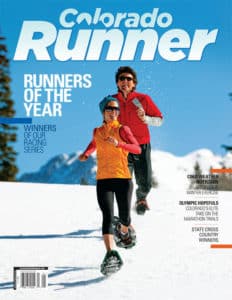Running is a pretty simple sport. You put one foot in front of the other. Whoever does it the fastest wins. If you run faster than anyone else in the world, you get a world record. Right?
So how is it that last April at the 115th Boston Marathon Geoffrey Mutai ran the fastest marathon ever in 2:03:02, but it didn’t count? He ran 58 seconds faster than Haile Gebrselassie’s world record. It was a brisk, windy day on a difficult course. But international running authorities say the Boston course is aided because it is a point-to-point course and has a net decrease in elevation of more than 1 meter per kilometer.
So the world record isn’t really the fastest time ever run. It’s just the fastest time run under certain conditions that officials determine. And they’ve decided that records can only be set on loop courses, for the most part. New York doesn’t count. Boston doesn’t count. Nearly every race in Colorado doesn’t count.
I was truly stunned in August, when the IAAF, which is the governing body of the sport, went even further. They decided that women’s road-race records would only count if they were set in women’s-only events. The ruling was retroactive, stripping Paula Radcliffe’s 2:15:25 world record set at the 2003 London Marathon. The second fastest marathon that Radcliffe had run was also in a mixed race, so that left her third fastest time as the record.
I can clearly remember when Paula Radcliffe ran 2:15:25. It was such a bold and powerful race. That time opened up possibilities that seemed unreachable for women. I ran my first marathon in 1999 a month after Tegla Loroupe set a women’s marathon world record of 2:20:47. For Radcliffe to run five minutes faster just a few years later seemed impossible. She was truly my hero.
Fortunately, in November, the IAAF overturned its ruling and restored women’s previous world record times. The new rule is going into effect this year stating that no future women’s records can be set if there are men on the course at the same time.
So, how does this affect us in Colorado? For the past five years, we have been keeping track of the All-Colorado State Marathon and Half Marathon Records, a list that was initially given to us by Jon Sinclair. Over these last five years, many of the age group and overall records have been bettered by some amazing athletes at some great races. This last August, Mario Macias ran 1:02:50 at the Georgetown to Idaho Springs Half Marathon. In our books, that’s the fastest 13.1 miles ever run in Colorado. But since the course drops 1,000 feet, USATF doesn’t recognize the accomplishment.
At the most recent Rock ‘n’ Roll Denver Marathon, Chris Siemers ran a 2:18:48, a time which qualified him for the 2012 U.S. Olympic Marathon Trials because the course is a “legal” course. This made him only the second person ever to qualify for the Trials in a race in Colorado. The other was Kara Roy at the 2006 Colorado Marathon. Ironically, that course is also now “illegal.” But in 2006, the qualifying standards were different, so Kara was able to run at the Olympic Trials.
The organizers of the RNR Marathon are also calling Siemers’s run a Colorado State Record. But wait. Norberto Segura ran 2:18:06 at the Rawhide Marathon in 1984. Isn’t that the record? According to our standards, yes. According to USATF, no. So, who is right?
“If you only take into account courses that are “legal” by USATF’s standards, then there would be only one or two courses in Colorado that could yield any records,” Sinclair said. “Bolder Boulder, Georgetown, on and on…. they are all out. When I put together the list, I decided to be inclusive and allow everything on a certified course.”
When you look at the current list of All-Colorado Marathon and Half Marathon records (which can be found on our website), you will see that the majority of the age group records were set on courses that are considered “illegal.” So, do we just wipe out all of these records? I think it would be unfair to the people who ran these amazing times to do that. So, we will continue to keep the All-Colorado Marathon and Half Marathon records as is and allow any time run on a USATF certified course. I believe that the majority of people in Colorado want us to keep the records the way they are.
Jessica Griffiths


